The readings this week in the One Year Bible have journeyed us through Chronicles, Romans and Psalms. In the last few chapters of 1st Chronicles, King David has become aware that he will not be the designated king to build YHWH a temple. Rather, that task will fall to his son, the soon-to-be King Solomon. However, as most Kings will do at the end of their reign and as most parents will do as their children step into roles of authority, King David has some words of wisdom for Israel and his son, Solomon.
“Be careful to obey all the commands of the LORD (YHWH) your God, so that you may possess this good land and leave it to your children as a permanent inheritance. And Solomon, my son, get to know the God of your ancestors. Worship and serve him with your whole heart and a willing mind. For the LORD (YHWH) sees every heart and understands and knows every plan and thought. If you seek YHWH, you will find him.” (1 Chronicles 28:8-9a)
A couple things for us to notice in this power-packed-wisdom-filled-words:
#1: Over and over the Old Testament scriptures are highly concerned with passing along a godly and goodly inheritance to the next generations. While my house has not been blessed with children (offspring), I do have countless students that have come to feel like children of my own; I do have nieces and nephews; and my extended family through M2M Charlotte offers me the blessing of having children in our midst!
I wonder if I am doing all I can to leave a godly and goodly inheritance to these next generations; I wonder if we as a society are leaving a godly and goodly inheritance to our children. Rather, it looks as if we are leaving the next generations with a mound of debt that will profoundly affect their ability to provide sustenance for their children and their children’s children. It looks as if we are leaving the next generations with an untenable situation in the environment. It looks as if we are leaving the next generation with no language and instruction on how to have a meaningful relationship with their Divine Creator.
We have a responsibility; a responsibility that if shirked or taken lightly, will lay huge consequences and ramifications on future generations. A “people of the Book” (Christians), we must realize this responsibility laid squarely upon our shoulders.
#2: We were created to live a certain way; there is a certain way of ordering our lives that is productive and fulfilling. It is how we were created and because the creator knows this, the Creator has provided commands, ordinances and statutes which make this ordering possible. As last week’s sermon explored and displayed, the overarching manner in which we are to order our lives is to “Love the LORD your God with all your heart, your soul and might and to love your neighbor as yourself.” (Christ said, all of the law is hinged on these two commandments). That command gets walked out in day-to-day living in very real and consequential ways. It is these ways that help us fully “possess” our existence. Christ called it “abundant life.”
In the first part of chapter 29 of 1st Chronicles, David tells Solomon and all of Israel, “The work ahead of you is enormous, for the Temple you will build is not just another building—it is for the LORD God himself!” (1st Chronicles 29:1)
This exhortation carries a heavy realization.
#1: Each of us is building a temple inside our own hearts and lives. It’s not just another life. It’s not just another building. It’s not just another body. It’s not just another way of ordering one’s life. It is in fact, a temple to the Living God. Everything we do (EVERYTHING) tends to the construction of that temple.
#2: We are attempting to build a new worshiping community known as M2M Charlotte. This is an enormous task; It is a weighty task and it is a difficult task. There are challenges and there will be challenges—but we must remember, we are not building this new worshiping community for ourselves. We are building it for the glory of God. (be reminded that the word “glory” carries connotations of testimony) What we build and how we build it and how we inhabit it says (testifies) about what and how we think about God. I’ve been asked before, “What do you think about God?” They are wanting me to offer my philosophical and theological understanding of the Divine Creator. I am happy to do that. But I never ask anyone what they “think” about God? I can tell what they think about God by the way they order their life.
Later in Chapter 29, David prays a beautifully articulated prayer. (Read it in 1st Chronicles 29:10-19) It is an example of how we should pray. It starts with praise, moves into thanksgiving and ends with petition. In that prayer, I am keenly attracted to these words: “O LORD our God even these materials that we have gathered to build a Temple to honor your holy name come from you! It all belongs to you! I know, my God, that you examine our hearts and rejoice when you find integrity there.”
Friends, may God find integrity in our hearts. May God find our motives to be pure in what we are building in our lives and in our new worshiping community. And may God “rejoice over us” when God finds it. I’m confident that having God rejoice over us will feel like some ecstatic place of contentment, joy and fulfillment.
